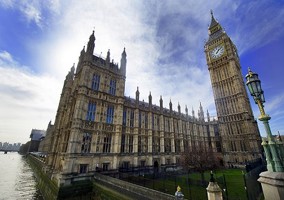Charities, whether large or small, local or national, are facing major challenges during the Covid-19 pandemic.
Most are facing increased demand for their services, whilst facing existential threats to their income and having had to furlough staff. Life is challenging to say the very least – and most unlikely to return to whatever ‘normality’ was, barely three months ago.
Yes, the government has offered financial support to the charity sector, but even by a proportional size of sector comparison, this has been on nothing like the scale being offered to businesses. And yes, charities can and are taking advantage of schemes such as employee furloughing but are also asking why furloughed staff cannot either work part-time or even volunteer. Funding, especially fundraising income is almost certainly going to take many months if not much longer to recover.
Consider the longer term
So, it is hardly surprising that charity leaders and trustees are focused on these immediate issues. Indeed, if they were not, one might question their integrity and fitness for their roles. However, it is also vital that charities seriously and pro-actively consider the longer-term future of society and the economy.
Pre-pandemic, and after a decade of austerity, the state of our public services was severely weakened, and sadly the state of social care and the NHS in particular have contributed in part to the lack of preparedness for and the impeded ability to respond more effectively to the virus.
Inequality and poverty were (and are) rife, and the pandemic has disproportionately affected the poorest and BAME communities. The use of food banks has increased (or perhaps, to use current vocabulary, has been “ramped up”). Many elements of the benefit system are broken. Precarious employment and low pay with in-work poverty are too prevalent.
Meanwhile, compared to most of the population, the wealthy have benefited disproportionately from government tax policies and in many cases from executive pay and company dividends. Social mobility gains have been reversed and the current closure of schools, necessary as it is, will further amplify the educational social divide. Homelessness is and remains a major scourge.
Rescue, recovery ‘and reform’
No surprise then that charities and VCS organisations, especially those concerned with social justice and the pursuit of equality and fairness are advocating that the post-recovery programme must be a rescue, recovery “and reform” programme. The “new norm”, whatever that turns out to be, must be not be a return to pre-pandemic conditions.
The Covid-19 crisis has demonstrated the need for government intervention, for public services and public expenditure. It has thrown the spotlight on essential public service workers and their importance to all of us. They can and should never again be dismissed as “low skilled” or continue to be “low paid” including when employed by charities. The pandemic has shown the damage that decades of the fragmentation and marketisation of services such as social care have created.
It has also proved once again that government cannot do everything from the centre. Much of the actual doing is happening in localities where civil society and social action have been complementing the local health service and local authorities.
Sector bodies should lead the way
I hope that the national representative bodies across the charity sector will seek to take the lead in producing a manifesto for a progressive rescue, recovery, and reform programme.
If the charity sector collectively, as well as individual organisations do not do this, I believe they will be severely undermining their credibility and relevance. Rather, they should be proactive in shaping public policy and not simply existing to mop up the consequences of the wrong policies. They should be ready to challenge ideology and to make the case for structural change - not simply for cosmetic mitigation.
Instinctively, the sector’s desired manifesto is likely to be very long and detailed, not least driven by specific communities of interest and specialist services. And whilst much of this is needed, it will probably best come from specialist charities.
Instead, I suggest that the manifesto could better address key issues such as:
- A commitment from government to tackle poverty, and inequality of wealth, income and power. Possibly through a guaranteed minimum income standard (including making the Real Living Wage the minimum across all sectors for all age groups); a guaranteed entitlement to public services; progressive taxation of wealth, land, income and profits; and reform of the benefits system and wider welfare system.
- Eliminating homelessness.
- Ending any lingering austerity and committing not to return to it.
- Social partnership and public service ethos superseding the marketisation of public services including the NHS and social care.
- Ensuring an end to precarious employment and introducing stronger employment protection.
- Introducing a green deal to rebalance the economy and offer new employment opportunities.
- Reversing the trend towards greater social immobility, especially through action in the education system.
- Strengthening local government and ensuring that it has the power to shape and build resilient local economies and support communities and partner local civil society.
- Reforming businesses culture, behaviours, governance and ownership to make business socially responsible, more inclusive, and responsive to employees, customers and communities with a greater emphasis on social enterprise.
These are some ideas and there are potentially many more.
The charity sector also needs to better define its own role and significance. In my opinion, the sector should argue that any post-pandemic settlement should include a government commitment to a review of charity legislation and policy, with an emphasis on the sector’s right to give voice, advocate and campaign - and less on service provision, especially public service contracting.
These are important matters but less critical than the sector setting out its vision for a decent, fairer and sustainable society and economy following a Covid-19 triggered rescue, recovery and reform programme.
John Tizard is an independent strategic advisor and commentator. He is currently a trustee and charity chair and chair of a CIC.
Related articles












